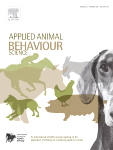Document type: answer to question 11346 published in the Journal officiel de la République française of 3/10/2023
Authors: question: José Beaurain (Rassemblement National - Aisne). Answer: Ministry of Agriculture and Food Sovereignty.
Question: Mr. José Beaurain asks the Minister of Agriculture and Food Sovereignty about the position he took on January 30, 2023 at the European Union's Agriculture and Fisheries Council (AGRIPECHE) against a ban on live animal exports to non-EU countries (Algeria, Israel, etc.). The fact is, one billion birds and 37 million cattle, pigs, sheep, goats and horses are transported within the European Union every year without being efficiently and effectively protected. We are therefore asking for support for the following measures: a ban on exports of [live] animals to countries outside the European Union; a ban on journeys lasting more than eight hours for cattle, sheep, goats and pigs, and four hours for poultry and rabbits; and a ban on journeys where the animals are likely to suffer from extreme temperatures. He would like to know his position on this subject.
Answer: As part of the "Farm to Fork" strategy, the European Commission is planning to update European Union (EU) legislation on animal welfare. Improving animal welfare and combating animal abuse are priorities for the French government. Accordingly, in March 2023, the Ministry of Agriculture and Food Sovereignty set up a preliminary consultation as part of the review announced by the European Commission of the regulations on animal welfare and protection. Its purpose was to identify common ground among stakeholders and to convey the French experience and particular circumstances to European decision makers. With regard to animal transport, a number of actions to improve animal welfare during transport were incorporated in the French position. Harmonization of transport control procedures between Member States, the need to provide better support for the idea of a coordinator for long-distance journeys, and the creation of an animal transport observatory at European level have all been brought to the attention of the European Commission. With regard to livestock farming conditions, France advocates better management of pain, either by reducing it, or by restricting or banning painful practices when a less painful and economically viable alternative exists. France is also calling for a ban on the systematic culling of male chicks in the egg sector, the compulsory appointment of an animal welfare advisor on farms, and the introduction of a professional development system for farmers. With regard to the introduction of European animal welfare labelling, France wishes to promote improved provision of information to consumers, through the voluntary labelling of animal products on the European market. In addition, the government has set out a number of principles that will underpin its position in forthcoming negotiations at European level. In particular, France has called on the European Commission to avoid creating a situation for European livestock farming that distorts competition or reduces competitiveness. This means working to strengthen the degree of harmonization with the EU's internal market; it also means improving the application of European standards by third countries (outside the EU) for the animal products they export to the EU, in a spirit of reciprocity. The French authorities have therefore proposed to the Commission that "mirror" clauses should be firmly embedded in the texts that form the future legislative package. France also considers it necessary for the changes to take account of new scientific knowledge, the existence of alternative production methods and previous impact studies. The government will pay close attention to the costs of transition, which should be shared by all those in the food chain, down to the consumer. Last, France believes that systemic transformation cannot happen immediatey, but must instead be conceived of as a long-term transition. It is essential to take into account the economic capacity of the industry to adapt over time to the new requirements, and to set deadlines for the entry into force of legislation so that professionals can have a firm basis on which to plan, particularly with regard to the amortization period for investments in livestock buildings.






